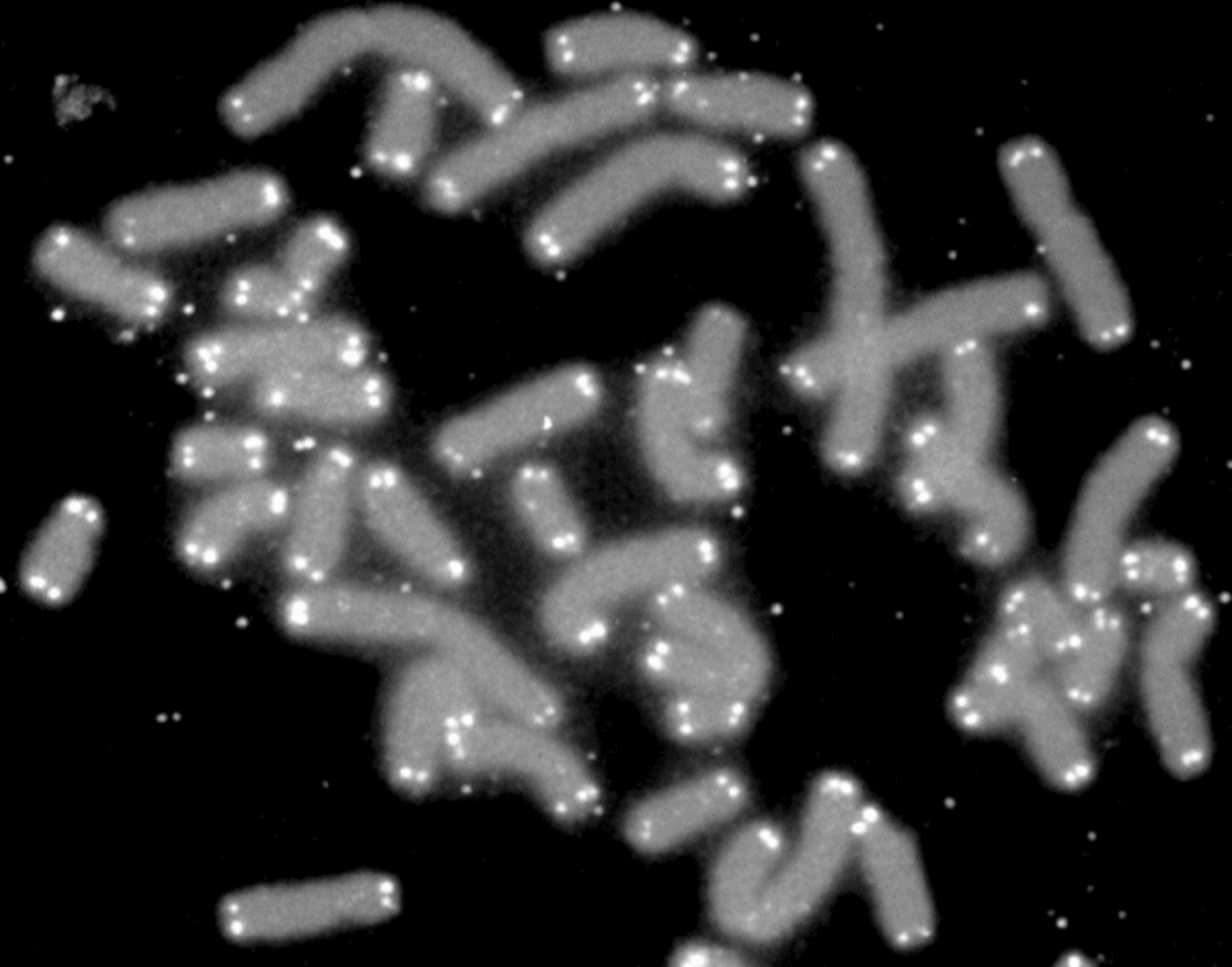Cancer is a disease that starts when cells become immortal and multiply out of control. Over the years, researchers have discovered that a crucial part in the process - for at least 8 out of 10 cancers - is the switching on of telomerase, a protein that makes telomeres, the 'caps' on the ends of our chromosomes (a bit like the plastic caps on the ends of shoelaces).
 Without telomerase, our telomeres get shorter and shorter, and eventually - when they get too short - the cell stops dividing. It's a bit like a molecular clock, counting down the lifetime of our cells. But cancer cells switch telomerase back on, so they can just keep multiplying.
Without telomerase, our telomeres get shorter and shorter, and eventually - when they get too short - the cell stops dividing. It's a bit like a molecular clock, counting down the lifetime of our cells. But cancer cells switch telomerase back on, so they can just keep multiplying.
Now new research from scientists in Cardiff, funded by the charities Cancer Research UK and Leukaemia & Lymphoma Research, have discovered that a certain type of leukaemia may actually develop as a result of telomerase not being active enough.
Led by Dr Duncan Baird, the scientists were studying samples from patients with chronic lymphocytic leukaemia, or CLL for short - this is a cancer that affects white blood cells, which multiply out of control. Writing in the journal Blood, the scientists used a new technique to precisely measure the lengths of telomeres in the cancer cells, and compared them to telomere lengths in blood cells from people without the disease.
They found that telomerase appears to be underactive in the cancer cells at the early stages of the disease, so the telomeres get shorter and shorter. At this point, you would expect the cells to stop dividing and die, but they don't.
Instead, the ends of the chromosomes start to stick together, causing strange genetic alterations that further fuel the development of cancer. But then the researchers think that telomerase get switched on at this point, immortalising the genetically weird cells, and fuelling the growth of cancer.
This is the first time that this process has been shown to happen in human cancer cells, so it's pretty important stuff. What's more, the research could potentially lead to a blood test for monitoring how fast leukaemia is progressing, by measuring telomere length, as well as helping doctors to decide on the best treatment, or speeding diagnosis.
Scientists are now trying to find out if this is involved in other cancers - they're looking at telomere length in other types of tumour, such as bowel cancer. At the moment, we don't have any results from this work. But if they find similar mechanisms at work, it could open up an exciting new avenue of research, which could lead to future cancer treatments or diagnostic techniques.
- Previous How Sharks Sniff out a Snack
- Next Eat or sleep?









Comments
Add a comment